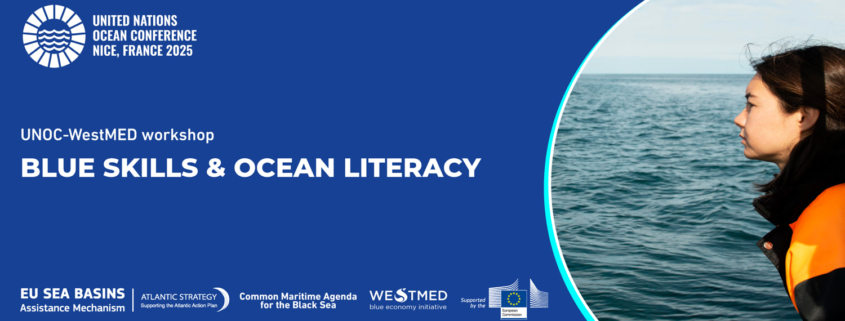WestMED Workshop at UNOC3 Spotlights Blue Skills and Ocean Literacy as Pillars for a Sustainable Blue Economy
Nice, France – 11 June 2025
The WestMED Initiative took centre stage at the United Nations Ocean Conference (UNOC 3) with a dedicated workshop on Blue Skills and Ocean Literacy.
Hosted at the Mediterranean Pavilion in the Green Zone, the event brought together high-level representatives from the European Commission, Mediterranean governments, international organisations, and regional stakeholders to reflect on how education, training, and awareness can drive a more resilient and inclusive blue economy.
The workshop, moderated by Matteo Bocci and Javier Fernández from the EU Sea Basins Assistance Mechanism, featured opening remarks from DG MARE, the WestMED Co-Presidencies (Portugal and Tunisia), and panel contributions from the Union for the Mediterranean (UfM), INTERREG NEXT MED, IOC-UNESCO, and the Atlantic Strategy Pillar II Coordinator.
A Political and Cultural Commitment to Blue Skills and Ocean Literacy
Kicking off the session, Ms Delilah Al Khudhairy, Director at DG MARE, framed the conversation around the EU Ocean Pact and the upcoming ‘New Pact for the Mediterranean’, both of which place a strong emphasis on empowering people as key enablers of ocean sustainability.
Speaking on behalf of the Portuguese Co-Presidency, Marisa Lameiras da Silva, Director-General for Maritime Policy, reminded participants of the deeper significance of blue literacy: “Ocean literacy is more than understanding the ways of the sea. It’s about transforming the way we think and act—building a new, inclusive maritime culture in which everyone plays a role.”
She emphasized that blue skills are not only about preparing for future jobs, but also about upskilling today’s workforce in areas such as digitalisation, marine renewable energy, green shipping, and sustainable tourism. “We must innovate technically, scientifically, and socially—ensuring that workers can adapt and lead change.”
Portugal also showcased how the WestMED Initiative is already delivering results, from thematic groups on Aquaculture (AquaWest) and Green Shipping and Ports to the Blue Skills Hackathon session held during last year’s annual WestMED event in Algarve, Portugal. That event led to new project ideas focused on cross-border recognition of qualifications, worker mobility, and the promotion of maritime careers.
Tunisia Calls for Practical Action and Shared Responsibility
From the southern shore, Mr Zied Bouzouita, Director of Cooperation at Tunisia’s Ministry of Foreign Affairs, provided concrete policy directions. Tunisia is actively investing in the development of blue skills through curriculum reform, practical training, and the creation of a regional observatory for maritime professions. “We need to align our training with tomorrow’s specializations—digital, ecological, and entrepreneurial. And we need mobility and public-private alliances to close the gap between the north and the south,” he said.
Tunisia’s presentation highlighted national efforts through EU-funded projects like YEP MED, MedSkippers, and CMES WestMED, which are already providing youth, women, and professionals with real-world maritime training, from port logistics to nautical tourism.
UfM: Addressing Youth Unemployment and Brain Drain
With over 60% of the Mediterranean population under 30, the Union for the Mediterranean (UfM) underscored the urgency of scaling up opportunities. “Closing the skills gap, creating quality jobs, and improving the attractiveness of maritime careers are not just economic needs—they are strategic priorities,” stated Adriana Salazar, UfM’s Blue Economy Expert.
UfM welcomed the WestMED feedback report on Blue Skills and encouraged continued alignment with existing frameworks such as the 2021 UfM Ministerial Declaration on Sustainable Blue Economy, INTERREG, and EMFAF programmes.
On the latter, one of the most relevant INTERREG Programmes, the NEXT MED Programme took the floor. Aldo Puleo emphasized its commitment to equipping young students and entrepreneurs with specialised skills in blue economy sectors and supporting their integration into the labour market.
The programme is also driving action to involve local communities, economic operators, and stakeholders in the protection of coastal environments from climate-related risks and in the preservation of marine biodiversity.
In addition, INTERREG NEXT MED fosters enhanced cooperation among local authorities to develop governance models that support the socio-economic and environmental sustainability of blue economy actions—especially in ports, fisheries, and tourism—ensuring these efforts have lasting territorial impact.
Connecting Sea Basins: A Cross-Regional Priority
A standout contribution came from IOC-UNESCO, a global leader in promoting ocean literacy. “Building a deeper understanding of our ocean is essential for a sustainable and resilient future,” explained Francesca Santoro, Senior Programme Officer at IOC-UNESCO. Within the EU4Ocean coalition, IOC-UNESCO organises summer schools for master’s and PhD students from across Europe and neighbouring sea basins. These immersive programmes combine scientific lectures, fieldwork, and hands-on workshops in areas such as marine conservation, coastal planning, ocean technology, and sustainable fisheries.
Beyond technical skills, the summer schools cultivate leadership, creativity, and international collaboration—empowering youth to become proactive ocean stewards.
“By investing in youth and promoting ocean literacy, we are building a society that values, understands, and protects our ocean for generations to come,” Santoro added.
Representing the Atlantic Strategy, Céline Liret stressed the need to break down silos between sectors and regions. “Whether we’re talking about renewable energy, shipbuilding, or coastal tourism, the future of the blue economy depends on our ability to share skills, knowledge, and solutions,” she said. The Atlantic Action Plan’s Pillar II, focused on Blue Skills and Ocean Literacy, mirrors WestMED priorities and supports cross-border cooperation to strengthen blue talent pipelines.
Key Takeaways and Next Steps
The session concluded with a forward-looking reflection from the WestMED Co-Presidencies and DG MARE, who agreed on the importance of establishing a dedicated WestMED Technical Group on Blue Skills, enhancing cross-basin cooperation, and making blue careers more accessible across the Mediterranean.
Key messages included:
- The need for inclusive training that reaches youth, women, and underserved communities;
- The importance of practical learning environments, such as ship-based internships, simulators, and blue entrepreneurship programs;
- The value of shared governance and mobility schemes, to harmonise training and employment across shores.
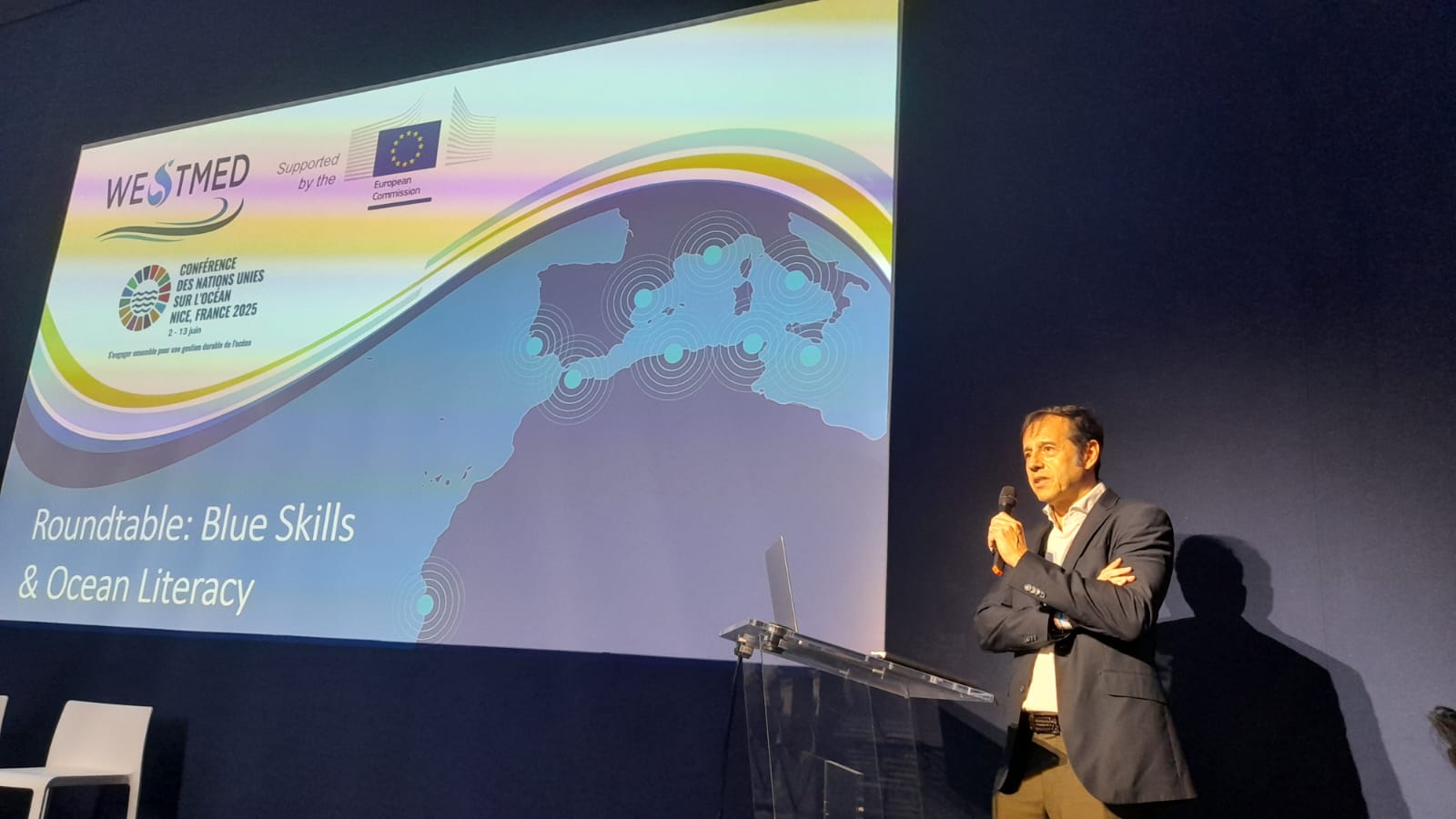
Javier Fernández (EU Sea Basins Assistance Mechanism)
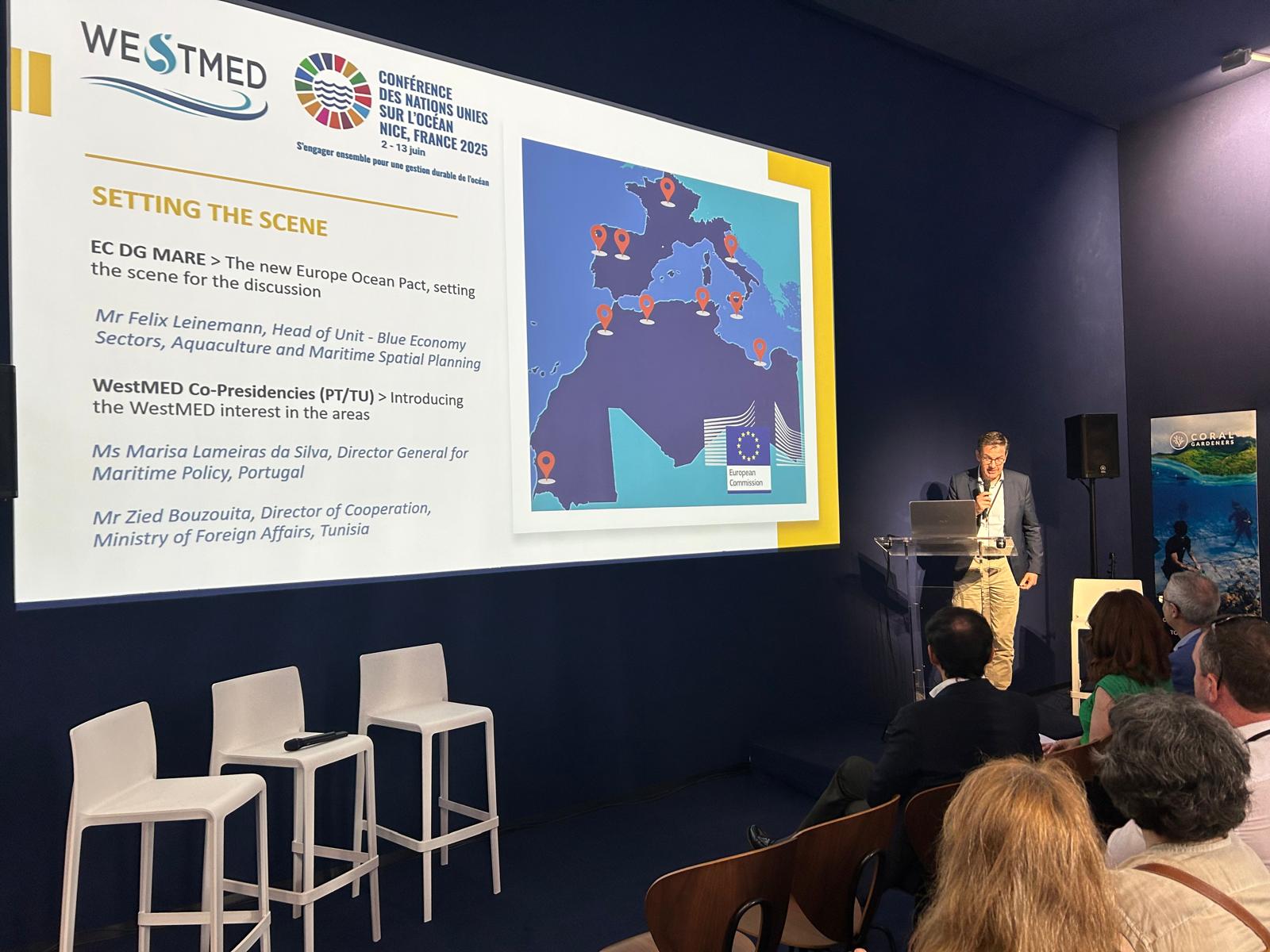
Felix Leinemann (DG MARE)
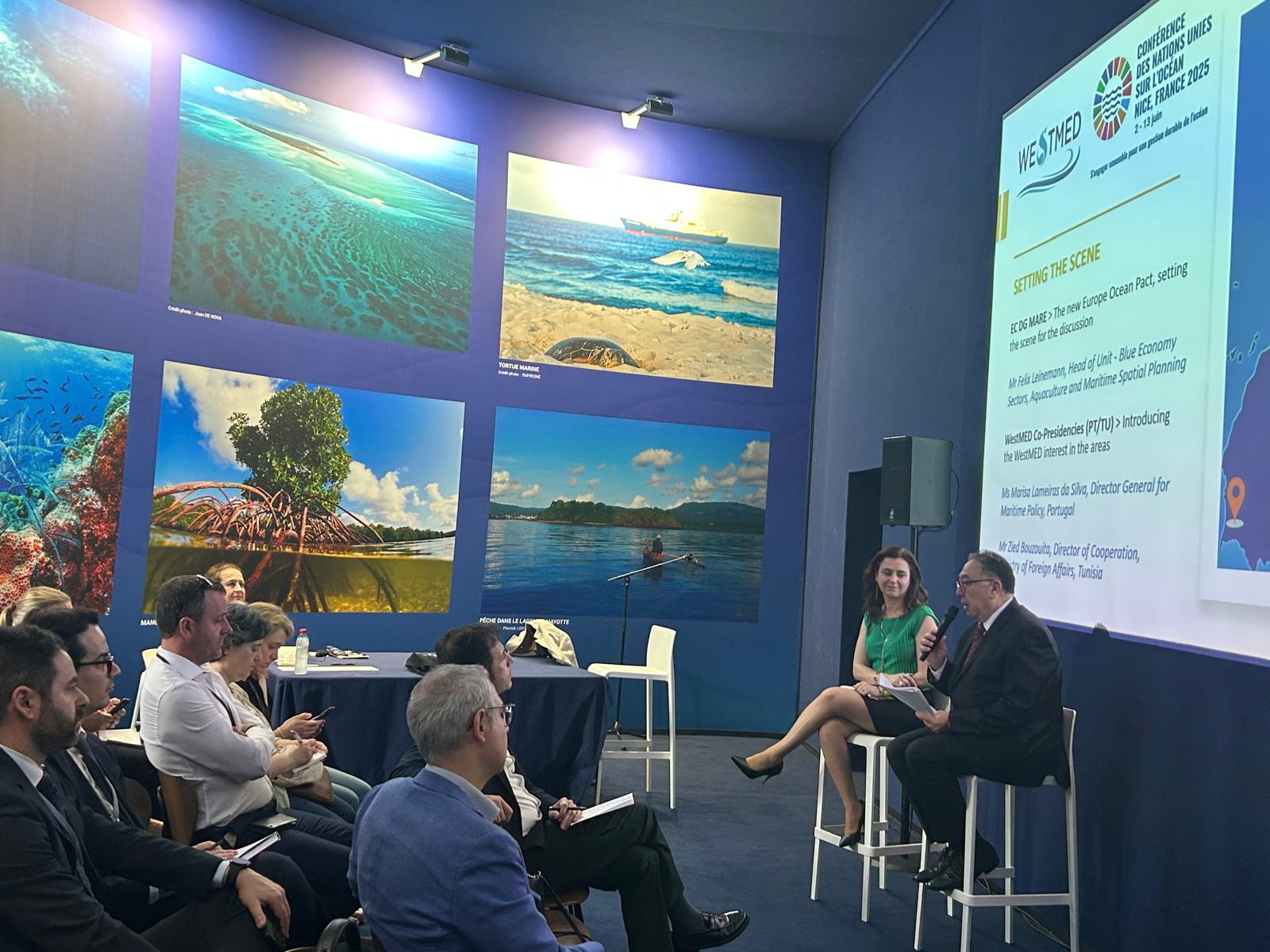
Marisa Lameiras da Silva and Zied Bouzouita (WestMED co-presidencies from Portugal and Tunisia)
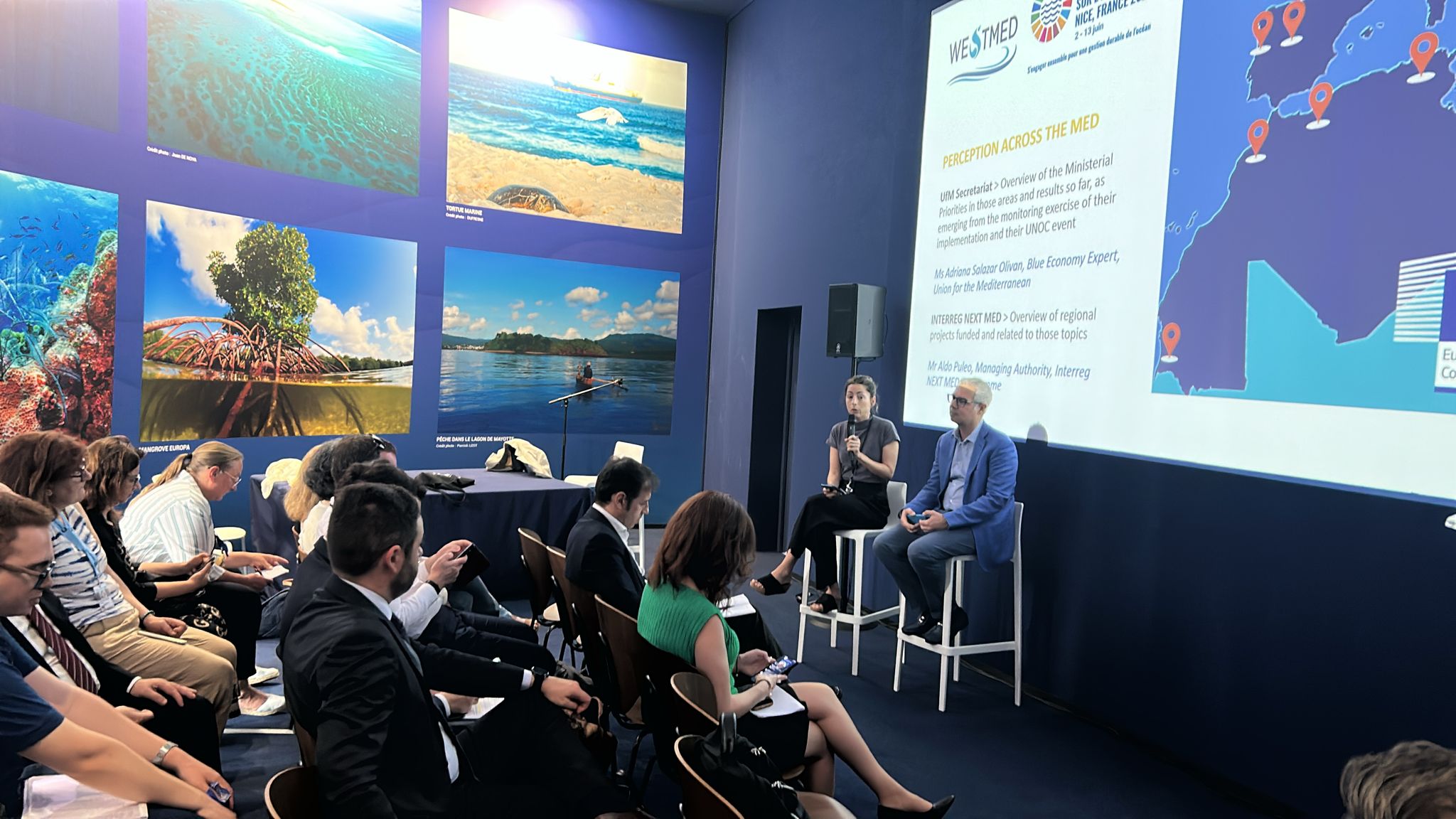
Adriana Salazar (UfM) and Aldo Puleo (Interreg NEXT MED)
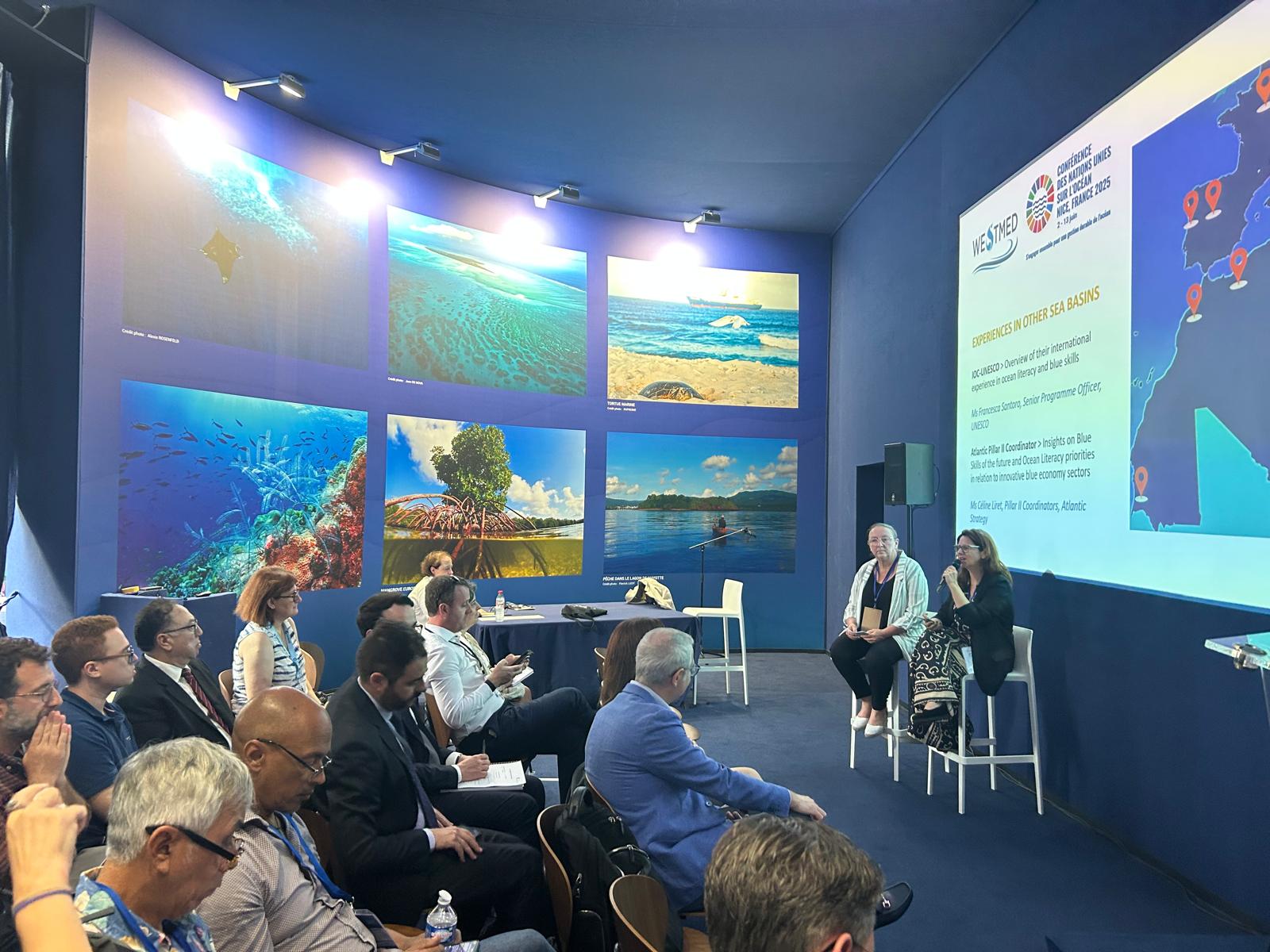
Francesca Santoro (IOC-Unesco) and Céline Liret (Atlantic Strategy Pillar II)
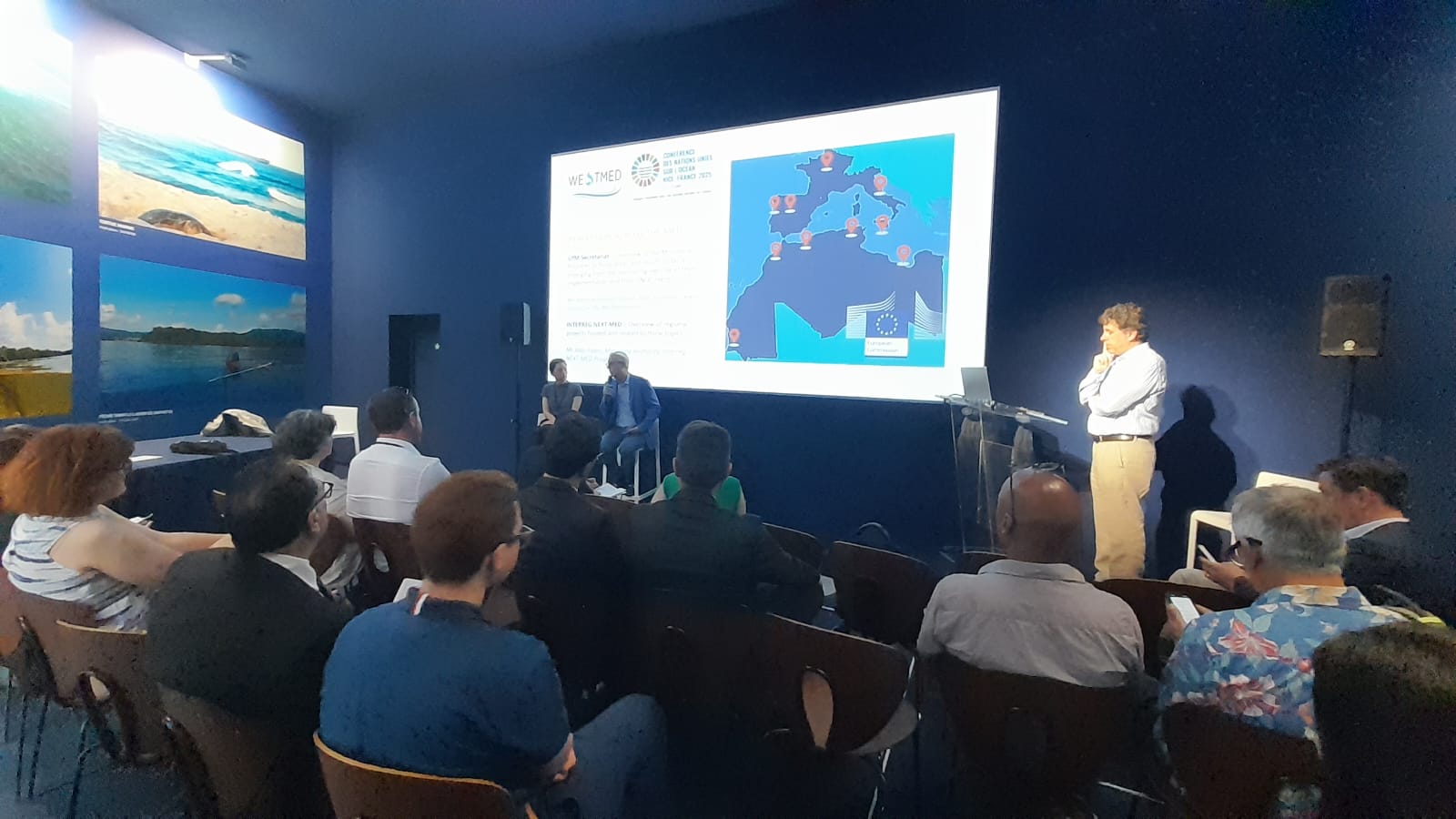
Matteo Bocci (EU Sea Basins Assistance Mechanism)

